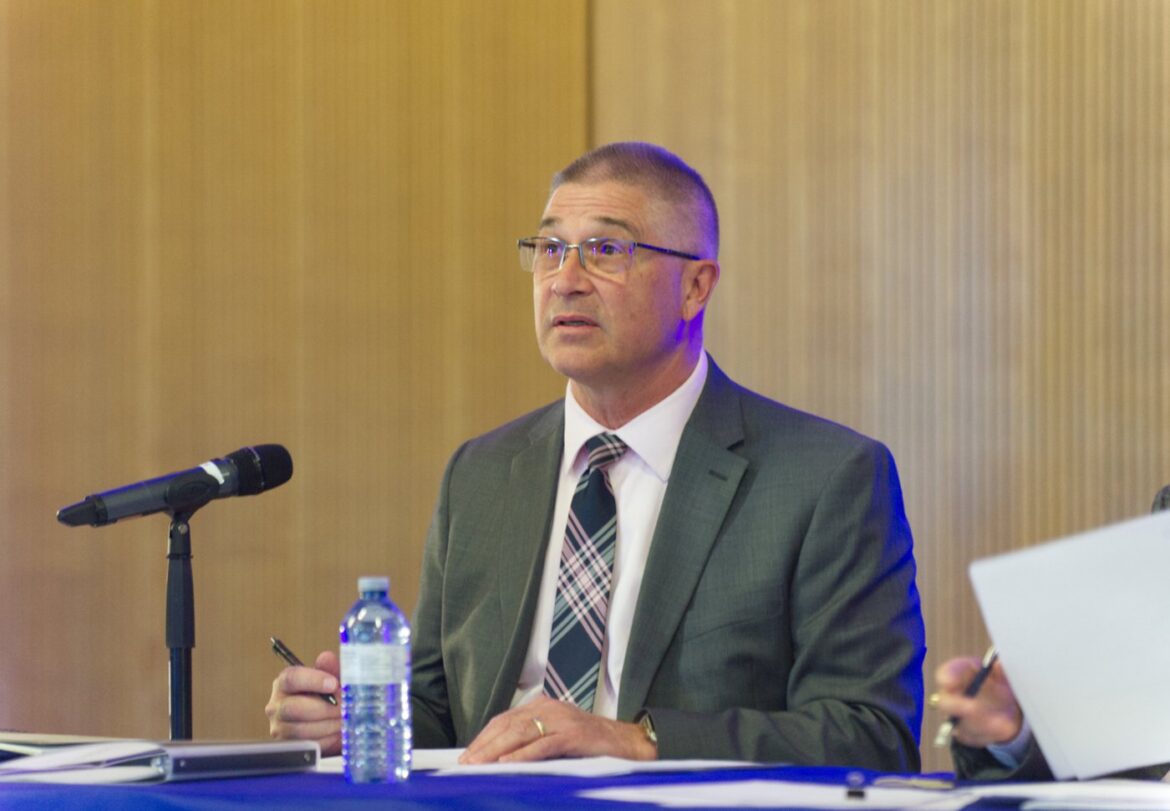By Talar Stockton | Yukon News
2023 saw one worker death in the territory, according to the Yukon Workers’ Safety and Compensation Board.
The board also reported one worker death in 2022. The 2023 death was announced at the board’s annual general meeting on Sept. 11, which took place in Whitehorse at the Kwanlin Dün Cultural Centre.
The death was not initially listed in the annual report. While Kurt Dieckmann, the board’s CEO and president, did not disclose details of the death, he said there is sometimes a time delay before the board is able to firmly declare that a death was work-related.
According to Dieckmann, the time delay can root in the fact that a death may take place close to the end of the year, or be a result of occupational disease, or the board is having difficulty determining whether a death is result of an initial work-related injury.
“And in this particular case, yes, we did have to investigate, but it was on the claim side to determine whether or not there was, it was, in fact, related to the workplace,” said Dieckmann.
Overall, 876 workplace injury claims were filed with the board in 2023, with 687 accepted. In 2022, that number of filed claims was 1,028, with 785 accepted.
There were 380 lost time claims, as opposed to 455 in 2022.
Board chair Mark Pike also announced a $10-million rebate for eligible employers.

Dieckmann said to be eligible, employers must have had an open account with the board and have paid assessment premiums in 2023. They also had to be in compliance with the Worker Safety and Compensation Act, meaning their accounts with the board are up to date with no outstanding money owed.
Yukon employers will also see their rates decrease in 2025. According to Pike, nearly three-quarters of Yukon businesses will see rates drop more than 5 per cent.
Government employers will see a rate drop of 3.6 per cent.
Construction employers will pay rates that 6.6 per cent lower if they fall under the medium-rate category. Some examples of medium-rate industries include welding, carpentry or road making. If employers fall under the high-rate group with building construction, repair, and demolition, or bricklaying and masonry, their rate drop will be 12.2 per cent.
Service industries in the low-rate category – churches, libraries, museums, schools, among others – will see a decrease of 3.8 per cent. In the medium-rate group of service industries, including those in retail, healthcare and restaurants will see a drop of 7.2 per cent. In the high-rate group, which includes delivery, animal control and security services, the rate drop is 10.5 per cent.
Resources and transportation will see a drop of 11.7 per cent in the low-rate category which includes gravel crushing, metal mining, and firefighting, among others. The medium-rate group will see a drop of 8.9 per cent: placer mining, reclamation and exploration fall under this category. Those in forestry, outfitting, oil well drilling – all in the high-rate group -will see a drop of 13.8 per cent.
Rates were set before the Victoria Gold heap leach failure, said Pike. The rates were based on the rates of injury over the past decade, he said.
“If there are issues that arise out of Victoria Gold, those would factor into our decision next year, and if they were extremely costly, it could have an effect that caused rates in the rate group that that industry is in to rise,” said Pike.





